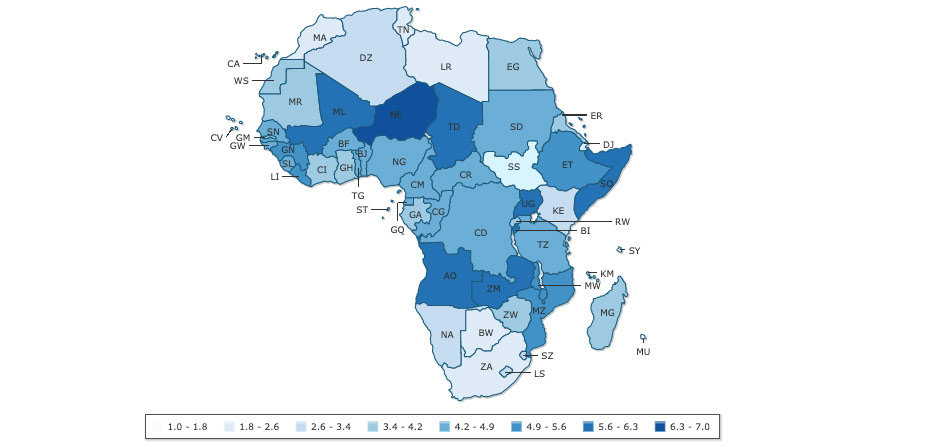
The election of Joe Biden as the next US President will herald a new era for global family planning, universal health care and the empowerment of women.
Until President Donald Trump was elected in 2017, the USA was the leading global donor of Family Planning and Reproductive Health care (FP/RH). Like other Republican Presidents before him, he applied the “Mexico City Policy” (better known as the “global gag rule”). This policy prohibited US Aid groups and US NGO’s from from using US aid for family planning funding to engage in any abortion-related services, whether that be counselling, education, doctor referrals or local advocacy campaigns. This had a devastating effect on the funding of NGO’s working in this field.
Map of Africa representing 2018 fertility breakdown by Country

Interview with Simone Filippini
The Way Forward
Interview carried out by David Richardson
References
“Leadership4SDG” https://www.leadership4sdgs.org
“Lancet” Published July 14, 2020:
https://www.thelancet.com/article/S0140-6736(20)30677-2/fulltext#%20
| Annex | Guide of Abbreviations and Acronyms |
|---|---|
| CSW | Commission of the Status of Women |
| Fp2020 | Family Planning 2020 |
| FP/RH | Family Planning and Reproductive Health Care |
| RHSC | Reproductive Health Supplies Commission |
| SDG’s | Sustainable Development Goals |
| SRHR | Sexual and Reproductive Health and Rights |
